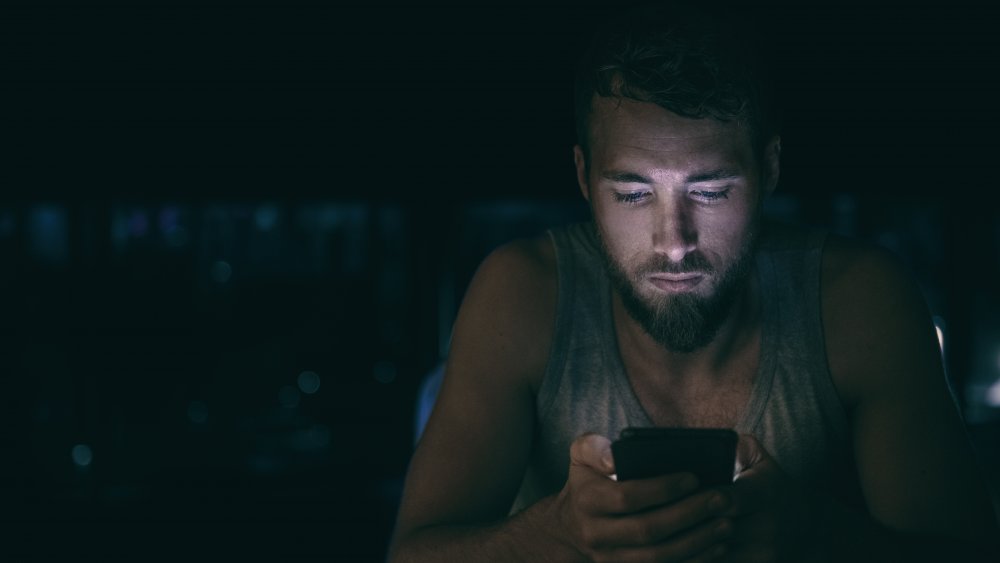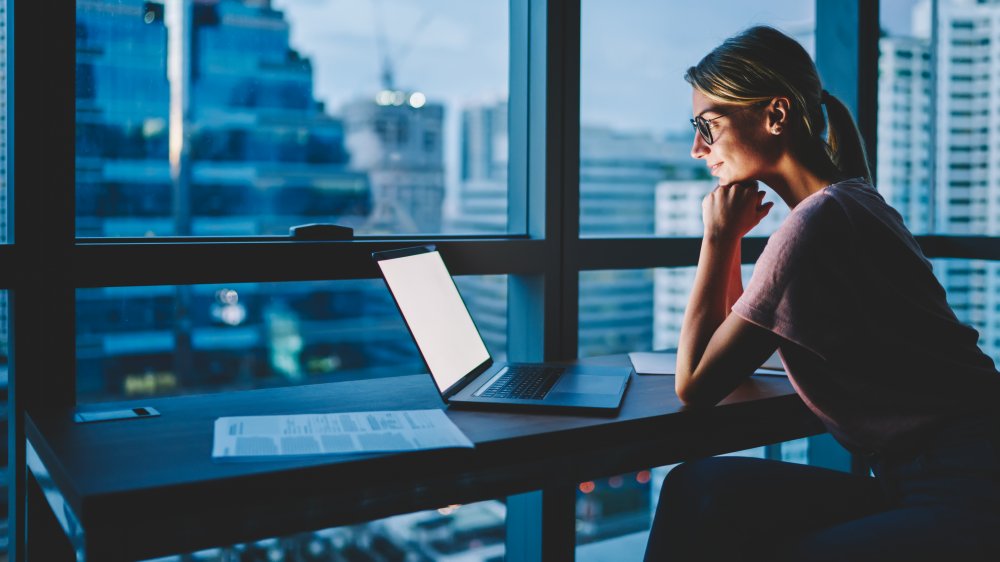How Too Much Screen Time Really Affects You
While you may be spending more time looking at a screen right now, it's important to remember to take a step back as frequently as possible. Whether you're working from home or back in the office, looking at a screen (be it your phone or computer) for too long can have serious side effects on your physical and mental well-being.
The average American adult spends more than seven hours a day staring at a screen with nearly 58 percent of people who work at computers suffering from Computer Vision Syndrome (via Business Insider). The ailment causes eyestrain, blurred vision, neck pain, and more.
But perhaps the most notable consequence of too much screen time is the disruption of your body's circadian rhythms. Since screens emit a variety of colors including blue light, absorbing these rays can damage your body's ability to regulate your hormones (via WebMD). An extremely important hormone, melatonin, tells your body when it's time to wake up, rest, eat, and function properly. When you're exposed to too much blue light from your screens, it can adversely affect your natural cycles — leading to insomnia and other issues, especially if you're on your phone before bed.
Too much screen time can change your brain chemistry
Just as too much screen time can directly impact your hormones, it can affect your brain as well. According to Psychology Today, studies show that screen addiction can lead to gray matter atrophy and damage to the area known as the insula, which is responsible for our ability to cultivate empathy and compassion. Furthermore, the white matter in the brain also becomes compromised underneath the glare of the screen. This can lead to loss of communication throughout different parts of the brain or cause "short circuits."
The bottom line is that screens should not take up as much time as they do for many of us. Simple ways to help offset the damaging effects include limiting your exposure to the blue light. Consider getting a pair of blue-light blocking glasses to use while you work at your computer and turn on the night-time mode on your phone, which filters blue light from your screen. This is particularly important at night; for example, a study found that people who spent four hours hovered over their e-books before bed produced 55 percent less melatonin than those who read print books (via WebMD).
But, the best solution is to cut down screen time and get outside, away from all technology as much as possible. Take breaks every hour to help your system reset and stretch to alleviate neck and back strain.

